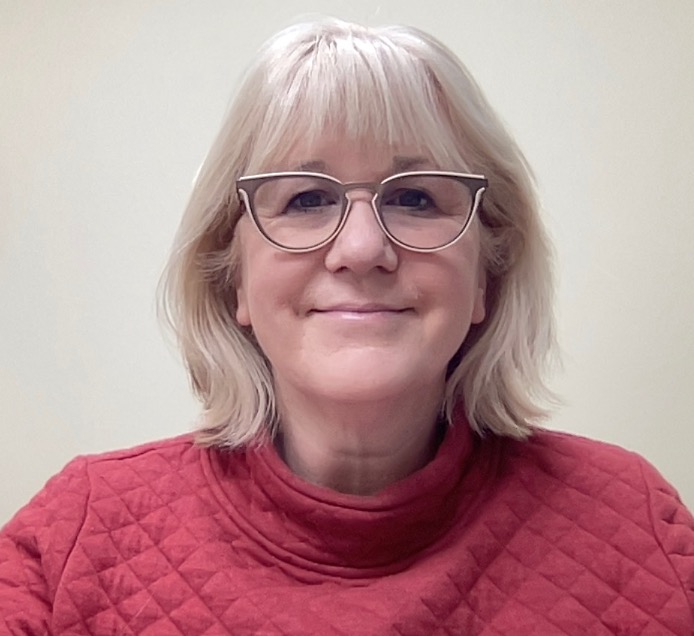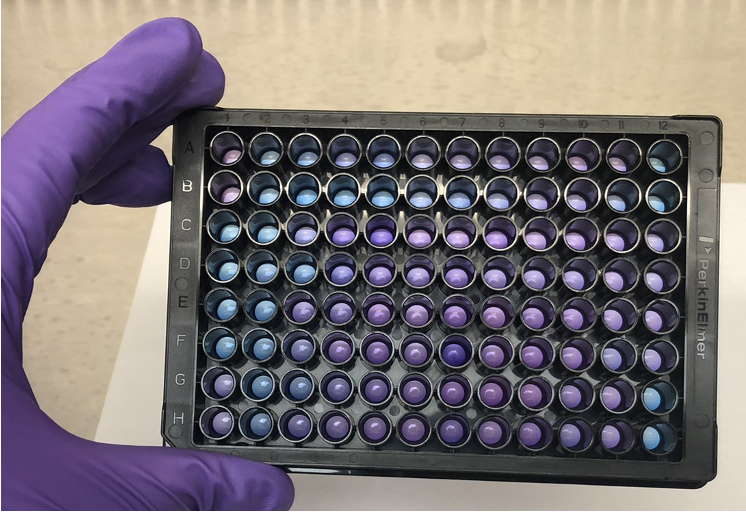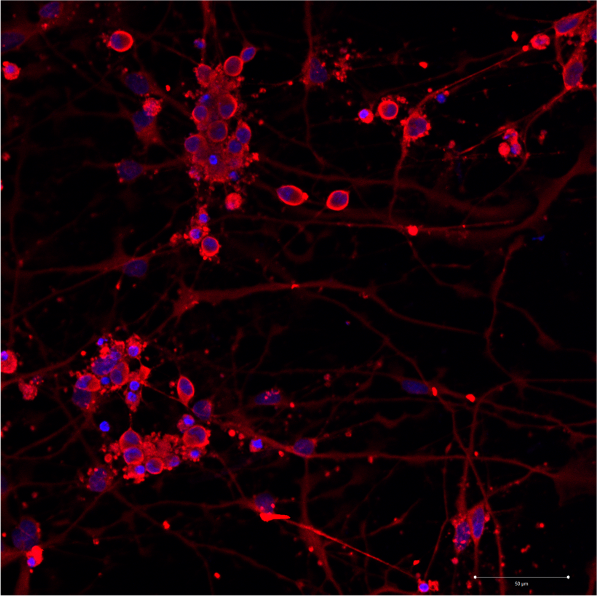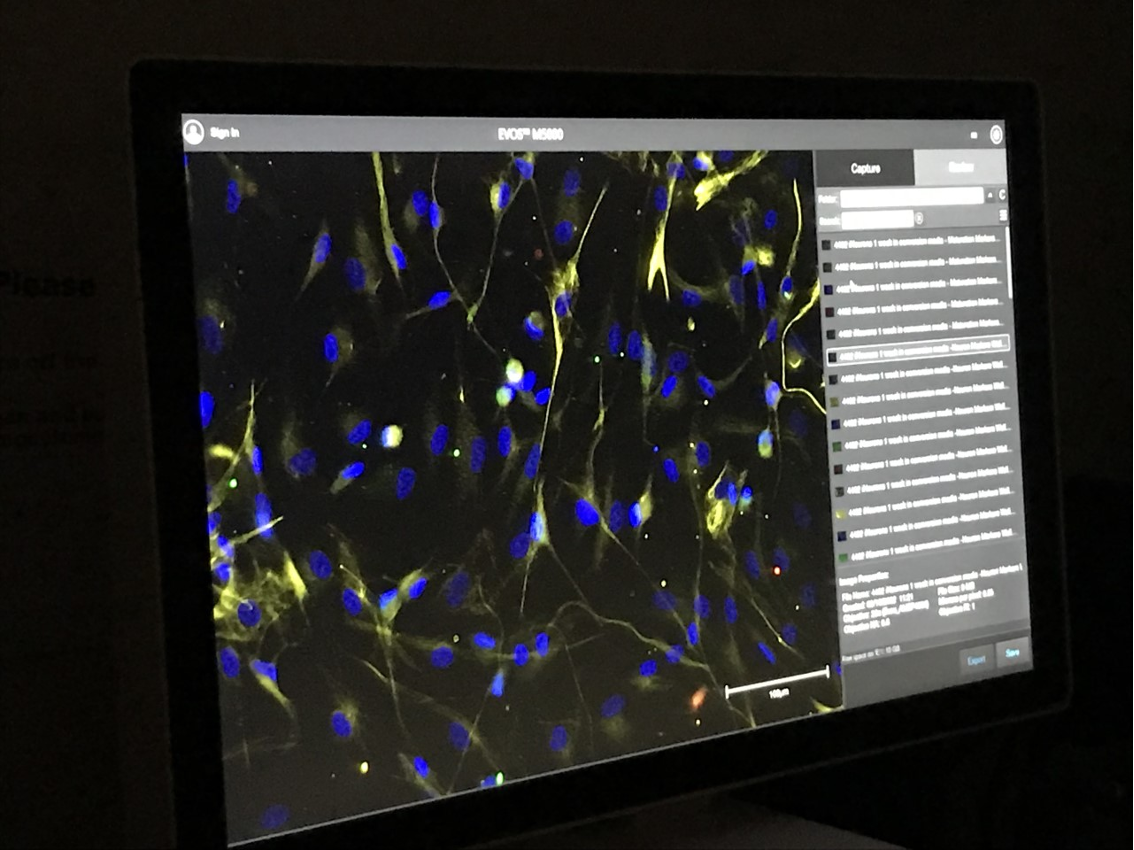UVA’s Drug Hunters—Early Phases of Drug Discovery

Elizabeth R. Sharlow, Professor of Research, Pharmacology in University of Virginia's School of Medicine discusses UVA's Fiske Drug Discovery Laboratory where impactful pharmacological research occurs every day. UVA graduate and undergraduate students are learning to become the next "drug hunters" to advance therapeutic treatments.
Drug discovery is a complex, time-intensive process that relies heavily on scientific teamwork across many disciplines (e.g., chemistry, biology, pharmacology, informatics, clinical sciences). When successful, the drug discovery process yields a small molecule (e.g., aspirin), or a biological (e.g., antibody or protein) that can save lives, relieve pain, or enhance human health and well-being. As our understanding of the basic mechanisms of disease advances, new therapeutic targets emerge, and new drugs can be designed and developed that are safe, highly effective with novel mechanisms of action.

Blue=neuron death. Purple=viable neurons
Although commonly associated with big pharmaceutical and biotechnology companies, drug discovery also thrives in academic research laboratories. In fact, approximately 30% of FDA-approved drugs have origins in academic laboratories. At the Fiske Drug Discovery Laboratory, situated in UVA’s Department of Pharmacology, we engage in early phases of drug discovery including the design and implementation of high content and high throughput screening assays used to identify drug leads, drug lead characterization and refinement, and preclinical studies to determine drug efficacy. We specialize in small molecule drug discovery and the development of unique, cell-based screening platforms that are used to identify “hit” compounds for development into drug leads. Partnering with physician-scientists and basic researchers throughout the University, U.S., and world, our mission is to advance therapeutic discovery for diseases, which are resistant or refractory to current drugs or for which there are no treatments. For example, we have designed and developed an innovative screening technology for the discovery of small molecules that prevent neuronal death in neurodegenerative disorders such as Alzheimer’s Disease. We have been most fortunate to receive funding from the Cure Alzheimer’s Fund and the Rick Sharp Alzheimer’s Foundation, which has allowed us to create two unique cell populations from human patient skin cells called (1) induced pluripotent stem cell (iPSC) derived neurons and (2) directly induced neurons (i.e., iNeurons) from healthy individuals and patients with Alzheimer’s Disease. iPSC-derived neurons and iNeurons mimic human primary neurons and allow us to design more physiologically relevant model systems.

Recently, our drug discovery efforts have yielded a small molecule inhibitor of the PTP4A3 phosphatase, JMS-053, which is now in preclinical development (via a small biotechnology company) for drug-resistant and drug-refractory ovarian cancer. Early studies suggest that JMS-053 prevents ovarian cancer cell dissemination and implantation. Moreover, JMS-053 may have applications to other cancers including recurrent glioblastoma, acute myeloid leukemia, and breast cancer, although more work is needed to move these efforts forward.
While contemporary drug discovery often is very structured and planned, serendipitous observation continues to play a key role. The COVID19 pandemic has irrevocably altered our global community, and “drug hunters” worldwide are seeking drugs to treat the many aspects of COVID19. We recently discovered that JMS-053 lessens the severity of SARS-CoV-2 acute lung injury and its associated “cytokine storm” that leads to more lung damage. Thus, JMS-053 is also being developed as a novel therapeutic for viral-induced acute lung injury and acute respiratory distress syndrome.

Drug discovery is not only complicated, challenging and time-consuming, it has a high failure rate and requires the individual to be fluent in many Life Science areas. As part of UVA educational imperatives, we, at the Fiske Drug Discovery Laboratory, actively teach undergraduate and graduate students and encourage them to become the next generation of “drug hunters.”
- Life at the Top: Climate Change in Utqiaġvik, Alaska
- The Only Thing We Have to Fear is Fear Itself
- Stay on Track: Turning Resolutions into Results
- UVA Club of Tidewater: Hoos at Harbor Park
- UVA Club of Atlanta: Cavs Care - Volunteer Income Tax Assistance Events
- UVA Club of Charlottesville: Hoos Reading Hoos Book Club